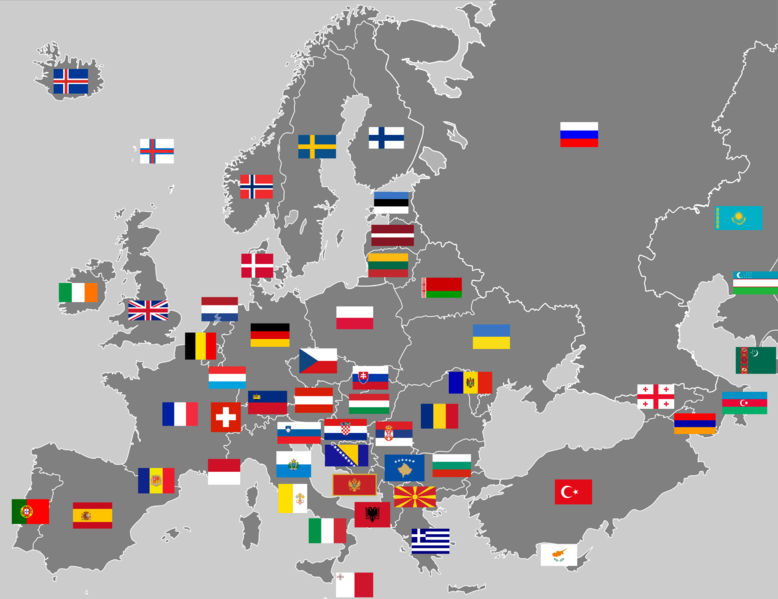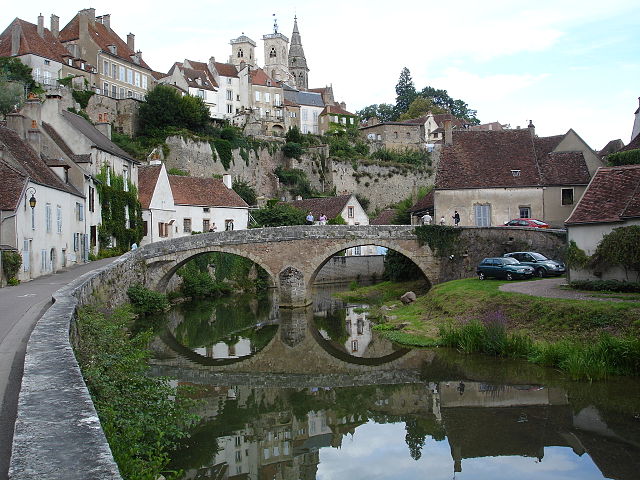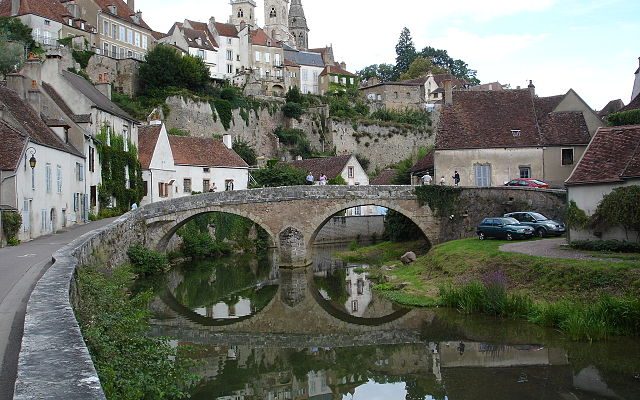Palate Press has selected our favorite stories from 2013 and will publish Redux articles over the holidays featuring Palate Press Columnists. The editorial board hopes you enjoy these highlights as we look forward to bringing you the best stories for your palate in 2014.
•••
You are going to die before you have a chance to experience all the things in life that spark your imagination. Go ahead, make a bucket list, as they say. If you’re intellectually curious, that list won’t be a finite body of goals; it will be a living organism that expands while you watch helplessly. I’ve never had a First Growth! I’ve never been to Greece! I wanted to learn to speak German! I want to act in a community play!
Some of it will happen; most won’t. Comforting, isn’t it? The best you can do is to shut your intellectual curiosity down after creating a manageable list of goals, then set out to achieve those goals at a pace in which the final item on the list will be crossed off mere moments before you expire. Sounds easy enough, right?
It is a wonder — a staggering, mind-melting wonder — that any human being ever utters the words, “I’m bored.” Are there not enough books to read? Art to consider? Music to hear? Wines to explore?
I’ve been thinking about this existential crisis quite a bit lately. Often it creeps up when my wife and I start planning our next overseas trip. Inevitably we consider past adventures and momentarily consider reliving them. Then we remind each other that we will never come close to seeing all the places we’d like to see before we die, so we ought to go somewhere new. And we start prioritizing, which is nearly impossible for me because Piedmont lands near the top of every last, despite our having been there. Which locations won’t make the cut in this lifetime? How sad is that? I want to see Turkey and Egypt, but not before Germany, and Germany not before we exhaust France. Which we will never tire of exploring.

These longings were crystallized beautifully in an essay in The New Yorker by the author Zadie Smith. Smith is an English fiction writer who also fancies herself a connoisseur and expert on the subject. Her essay is built around her growing appreciation for the music of Joni Mitchell, and it includes a passage about her capitulation to the notion of ever scaling the summit of her vast interests:
When I find myself sitting at dinner next to someone who knows just as much about novels as I do but has somehow also found the mental space to adore and be knowledgeable about the opera, have strong opinions on the relative rankings of Renaissance painters, an encyclopedic knowledge of the English civil war, or French wines — I feel an anxiety that nudges beyond the envious in the existential. How does she find the time?
Indeed. This paragraph pushed me not to widen the scope of my interests, but to narrow it within the world of wine. Which wines and which regions are calling for deeper examination? Which regions might I find the resources and time to visit? Should I push wider, get beyond my weekend habits of Piedmont and the Rhone?
The author of one of the best wine books ever written, importer Terry Theise, would argue that I should not. In his book Reading Between the Wines, Theise describes his narrow focus (for him it’s primarily Riesling and Champagne). He dismisses the idea that he should be open to exploring, say, California in detail. He writes of the value in finding one’s wine passion, and then sticking to it.
There are compelling reasons to think Theise is right. As Smith notes in her essay, we simply can’t become experts in all the things that provoke our interest. By extension, simply saying, “I love wine” is far too general. Which wines do you truly love? Why? If you narrow your focus to a region or two, you can spend a lifetime becoming intimately familiar with those wines, the vintages, the men and women who make them, the land from which they come. You can build verticals and horizontals and diagonals and whatever else you can endeavor. You can hold those wines for years, knowing their origin in detail when you finally find the moment to open them.
But this doesn’t quite work for me. After all, if I stopped exploring years ago, I’d be stuck in Napa. These days, Napa is only occasionally of interest to me. Every year seems to bring a new divide that demands crossing. I have recently returned to Chinon after too much time away. I’m glad I came back. There’s a good chance I’ll be there in person in just months. I can not guess where my mind will wander in 2014 or beyond, but the connections in wine are irresistible. Doors open no matter the language or background.
The monument that stands to prove my point is Burgundy.

I spent years flitting in and out of Burgundy’s atmosphere. Occasionally I was moved — Meo comes immediately to mind — but so often I was disappointed. I’ve now had about half a dozen bottles of Gouges, from a wide range of vintages. Each one has been hard as nails, unyielding. It’s like going to a museum, finding out it’s closed for the day, then trying to take in the art through the windows. With the lights off.
And everyone keeps telling me how great Gouges is.
Burgundy seemed to present the greatest challenge of all, but I didn’t want to walk away. And to help explain the magnetism of Burgundy, I turned to two people who are much better equipped to explain it than I am. Keith Levenberg, author of the outstanding wine blog called Cellar-Book, referred to a recent thread on Wine Berserkers asking whose cellar you’d swap yours with if you had the chance. In an email, Keith says:
“That’s an easy decision for a Bordeaux collector because you just have to count up the first growths and trophy Pomerols. For a Burgundy collector, that’s like asking whose music collection you’d trade for yours. It’s the choices that give it meaning. I don’t think there are too many people lamenting an excess of choice in the music world. And Burgundy, like music, is about finding what has an emotional resonance for you and not only listening to the consensus best.”
What a fine way of describing it, and no wonder that Burgundy holds such mystery. Apart from the obvious and untouchable few — DRC and its ilk — Burgundy is an open canvas for the wine lover’s mind. There are not necessarily right or wrong answers. For that reason, Burgundy requires you to know yourself, because you can’t simply rely on a point score or groupthink. For this reason, it’s the region that appeals to me most. It challenges me to understand my values.
Jim Silver, proprietor of Empire State Cellars on Long Island and General Manager at Peconic Bay winery, delivers another excellent reason to pursue Burgundy: “The disappointing randomness of Burgundy is exactly why it is so beloved–since sameness and predictability are everything that is wrong with wine today.”
We have reached a point of winemaking quality control that finds producers can make similar tasting wines from Chile, Argentina, California, New York, France, Italy, etc. But should we want that? Silver’s point is that if we abandon our addiction to what is safe, we can occasionally find what is beautiful. “Burgundy might be the most pleasurable wine in the world, but not necessarily because of any hedonistic properties,” he says. “It satisfies the mind and soul better than the palate.”
But back to our wine choices: How daunting it can be to decide to pursue Burgundy while knowing it can be expensive and pockmarked with wines slumbering through dumb phases. Why bother? There is so much wine to explore and enjoy. Here’s Levenberg one more time, obliterating the notion that we must spend a lot on Burgundy to alight upon the highest quality:
“The difference between Musigny and Chambertin is not one of quality, but of personality. And even if you could afford to drink Musigny or Chambertin every day, you wouldn’t, because there are occasions when the muscle of a Pommard is more desirable than the finesse of a Musigny. The difference between Musigny or Chambertin and the ‘lesser’ premier and village crus of their villages is not exclusively one of hierarchy, either. Gevrey-Chambertins Les Cazetiers doesn’t taste ‘kind of like Chambertin, only not as good’ the way a fifth-growth Pauillac tastes kind of Lafite or Mouton, only not as good. It offers something different and you have decide whether that’s something you want. Everybody’s going to grok some vineyards but not others for reasons that have nothing to do with which are better or worse.”
See how much I’m focusing on Burgundy? And this isn’t even a piece on Burgundy. This is just an example that a wine region I had previously waved off has now captured my imagination. It’s an intellectual pursuit that I am now undertaking almost involuntarily. I am willing to make mistakes.
And now we circle back to the travel. Still thinking about that trip to Europe this year? Do it, especially if it involves wine. The best way to remind yourself that wine doesn’t have to be expensive to be special is to taste it with the people who made it, on the land where it was grown. You can come home — as I did — flush with Barolo that doesn’t bear the name “Conterno” but is no less enthralling. You can find a Dolcetto that spurs you to reevaluate your thoughts on an entire variety. And you can discover — as I hope to discover — that Burgundy is truly a tangled and riveting web of people and place.
By the way, Silver eased my concerns about Gouges: “Gouges is never ready, ever. Which is why it’s so fascinating.”
I wouldn’t have understood years ago. I do now. I’m glad I didn’t give up on Burgundy, and while I will never conquer every region that I’d like to, I’m going to keep trying. The intellectual journey is the pleasure; turns out, there is no destination.

